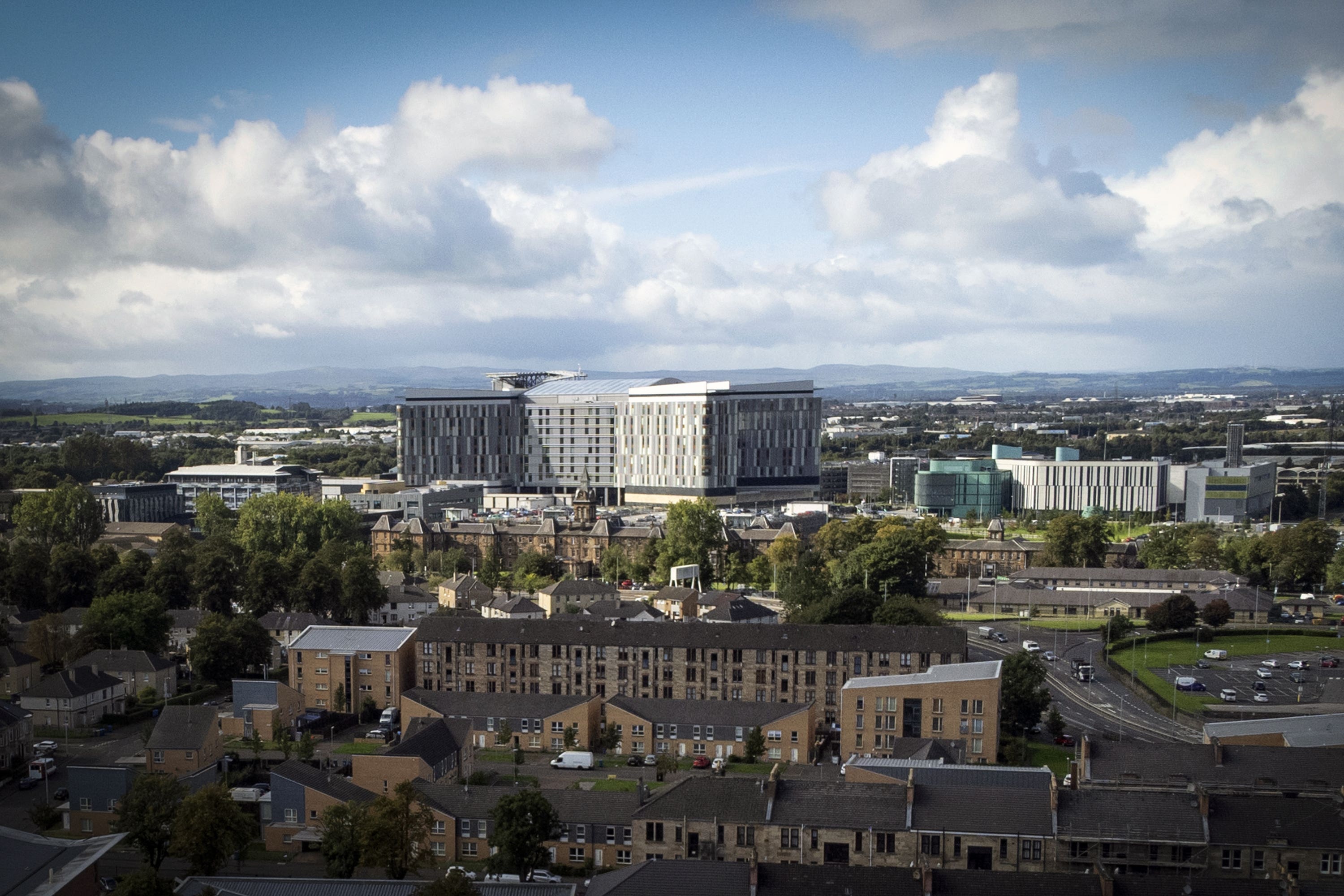Senior paediatrician describes ‘mystery’ of infections at superhospital
Two hospitals are being investigated at the inquiry in a bid to establish if design and construction contributed to deaths linked to infections.

Your support helps us to tell the story
From reproductive rights to climate change to Big Tech, The Independent is on the ground when the story is developing. Whether it's investigating the financials of Elon Musk's pro-Trump PAC or producing our latest documentary, 'The A Word', which shines a light on the American women fighting for reproductive rights, we know how important it is to parse out the facts from the messaging.
At such a critical moment in US history, we need reporters on the ground. Your donation allows us to keep sending journalists to speak to both sides of the story.
The Independent is trusted by Americans across the entire political spectrum. And unlike many other quality news outlets, we choose not to lock Americans out of our reporting and analysis with paywalls. We believe quality journalism should be available to everyone, paid for by those who can afford it.
Your support makes all the difference.A senior paediatrician said he could not imagine a more serious concern than “mystery” outbreaks of infection at a superhospital, an inquiry heard.
Dr Alan Mathers, chief of medicine for women and children’s services at NHS Greater Glasgow and Clyde (NHS GGC), began working at the Queen Elizabeth University Hospital (QEUH) in June 2015, as clinical director of obstetrics and gynaecology.
He then became the chief of medicine at Royal Hospital for Children, in the same campus, and said there were initially concerns about rooms used to treat children requiring a bone marrow transplant.
Both hospitals are being investigated at the Scottish Hospitals Inquiry in a bid to establish if design and construction contributed to deaths linked to infections.
Dr Mathers described QEUH as a “cathedral to medicine” due to its size, and said he hoped the inquiry would improve how hospitals should be built.
I think the nature of mitigations that were being employed was of an organisation that was trying to do something
Giving evidence, he said that during 40 years working for the NHS, he had seen several infection outbreaks, but medics in the QEUH campus were seeing “novel organisms”.
He added: “They were things which were not in the clinical memory.”
Dr Mathers told the inquiry concerns began in 2015 regarding fungal infections, but “mutated” by 2017 to concerns about the wider environment, and said he was aware of issues with water in two other Glasgow hospitals.
The inquiry heard that by 2019, additional prophylaxis drugs were being prescribed to child patients, but Dr Mathers said he was unable to say whether parents had been told of concerns about the hospital environment.
In August 2019 he was invited to a meeting about Haemato-oncology at QEUH, which turned into a discussion around the chairing of infection management team (IMT) meetings, but said he found them “to be conducted professionally”.
In a statement, he said: “I have experienced many infection clusters during my career. The issue of concern was the lack of a readily identifiable cause and set of effective mitigations. Once an infection occurred, treatment was delivered but the underlying mystery remained.”
Inquiry chairman, Lord Brodie said: “You’ve described a period of time as a ‘mystery’, possibly as early as 2015, about concern of fungi, and continuing at least until the start of 2019.”
Dr Mathers said that “2015 was about safety and prevention of risk in terms of fungi, as that was a risk to immuno-suppressed patients. It had mutated by 2017 to concern about the rest of the environment”.
Lord Brodie said: “The concerns in 2017 arose to a variety of unusual infections. You were hearing discussed at IMTs, micro-organisms from your own practice you had not previously come across. The paediatric clinicians were similarly reporting an experience of a variety of unusual infections, and you mentioned in your statement that this continued at least until January 2019.
“Were there any suggestions that there was nothing unusual occurring in either hospital?”
Dr Mathers said: “No, I got no impression of there not being a concern. I think the nature of mitigations that were being employed was of an organisation that was trying to do something.”
Lord Brodie said: “I’m interested to know if there was anyone arguing or suggesting that there was nothing unusual happening.”
Dr Mathers said: “I think it would be breathtakingly naive given the amount of data that was presented for someone to take that position, given this has the capacity to get on the front page of a newspaper.
“I do not think you can take a more serious scenario and take a punt on it not being a problem.”
He told the inquiry the larger hospital was not designed for children and almost four years after QEUH opened the situation was “unsatisfactory”.
Dr Mathers added: “I am familiar with a lot of NHS building projects which have been beset with what some people might say are snagging issues but are real issues with reputation. Change is difficult. The QEUH is like a cathedral to medicine due to its size. Much was spoken about its large size compared to other hospitals in Europe.
“The bigger you are, the need for an enhanced infrastructure. I don’t think people can underestimate the change in secretaries being embedded within a ward, then moved somewhere else. There was much talk about dissociation of that connection.
“Getting people to work in a new environment but effectively and happily, is in my view as important as the actual build around them.”
The inquiry continues.